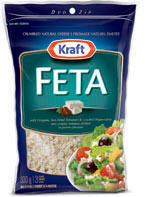US Senators shocked by EU’s cheese-name claims

EurActiv.com with Reuters | 12 March 2014
US Senators shocked by EU’s cheese-name claims
In a rare act of bipartisan unity, dozens of US senators have wheeled into action against what they call an "absurd" European initiative that would force name changes to common cheese varieties produced in the United States.
Would a Stilton cheese by any other name smell as sweet? The EU’s request to rename cheese that is not produced in their region of origin grated on the US lawmakers.
"Can you imagine going into a grocery store and cheddar and provolone are called something else?" said Senator Pat Toomey, a Pennsylvania Republican.
Toomey and Charles Schumer, a New York Democrat, rallied more than half of the 100-member Senate to urge US Agriculture Secretary Tom Vilsack and US Trade Representative Michael Froman to fight the EU cheese-naming proposal.
Canada agreed recently to impose restrictions on the use of "feta" and other common cheese names, but the senators said for the United States, no whey.
"Many small- or medium-sized family-owned farms and firms could have their business unfairly restricted by the EU’s push to use geographical indications as a barrier to dairy trade and competition," they said.
The senators said their action was supported by Kraft Foods Group, Denver-based Leprino Foods, the world’s largest mozzarella maker, and groups such as the National Milk Producers Association, US Dairy Export Council, and the American Farm Bureau Federation.
"Muenster is Muenster, no matter how you slice it," Schumer said on Tuesday.
Emerging dispute over geographical indications?
The dispute over cheese names could be a foretaste of things to come over geographical indications of food products as the US and the EU continue negotiations on a Transatlantic Trade and Investment Partnership (TTIP).
In Europe, wine and food producers rely on protected geographical indications to name products such as Cognac, Roquefort cheese, Sherry, Parmigiano Reggiano, but also Basmati rice or Darjeeling tea.
The protection of geographical indications can create value for local communities through products that are deeply rooted in tradition, culture and geography, argues the European Commission’s trade department.
A recent study by the Munich-based European patent office, showed that 35% of European jobs depend on patents, trademarks, designs, copyrights and geographical indications. About half of all EU industries are IP-intensive, the report said.
Pekka Pesonen, the boss of the EU farmer organisation Copa-Cogeca, warned that EU-US trade negotiations should “not rock the boat” when it comes to consumer confidence in food and farming products.
“From a US-EU farmer’s perspective we have a common interest not to rock the boat at the end on either market, in the US or in the EU. Consumer confidence has to be maintained, no matter what,” Pesonen told EurActiv in an interview last December.





